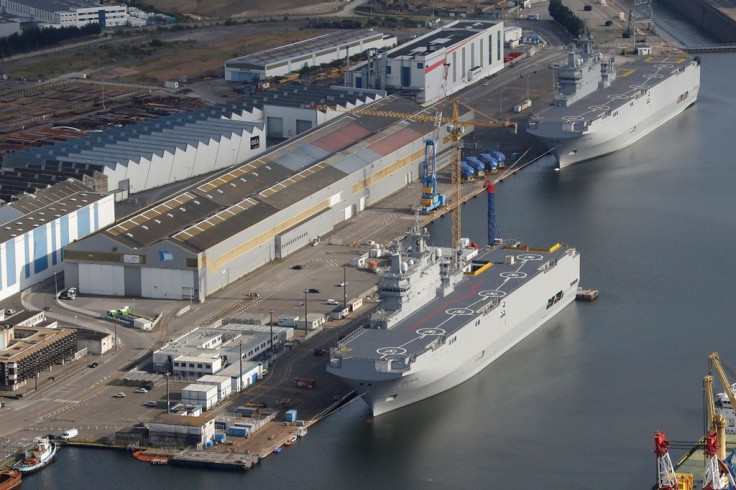Canada May Beat Saudi Arabia, Egypt In Race To Buy French Warships Made For Russia

Egypt is one of around 10 countries that have shown interest in buying two French helicopter carriers France originally was supposed to deliver to Russia. France agreed to sell the warships to Russia in 2011, going against a number of NATO allies including the United States. The agreement was originally signed by then-French President Nicolas Sarkozy.
French President Francois Hollande said in November he would hold the delivery until there was a ceasefire in eastern Ukraine. Hollande and his Russian counterpart, Vladimir Putin mutually decided to cancel the contract last Wednesday. After canceling the contract, France now has to pay around $1.2 billion to Russia.
Egypt is among countries interested in buying the carriers. A diplomatic source revealed Egyptian President Abdel Fattah el-Sisi had talked about the possible purchase with Hollande.
Egypt bought four small warships in 2014. France owns a 64 percent share of DCNS, the company that made those. Sources reveal Egypt may buy one more Fremm frigate from DCNS.
"Egypt's initial need was for two Fremms, but its budgetary constraints currently prevent any negotiation about a second ship," al-Bawaba quoted a diplomatic source as saying.
According to a French diplomatic source, Saudi Arabia is among the other countries interested in the purchase. Others include Canada, Singapore and Brazil. The source said Canada could be the most likely candidate to buy the carriers as those had been designed for cold waters.
Russian defense analysts were divided on whether it had been a practical decision for Russia to buy such expensive carriers. Vadim Kozyulin, a military expert at PIR Center in Moscow, said the cancellation of the deal had been a “real relief” for the country.
"Helicopter carriers [like Mistral] are not armed and require huge air, anti-missile and anti-submarine defenses, which means they need to be escorted by a wide net of support vessels, and this is burdensome for any navy budget," the Moscow Times quoted Kozyulin as saying.
© Copyright IBTimes 2024. All rights reserved.




















